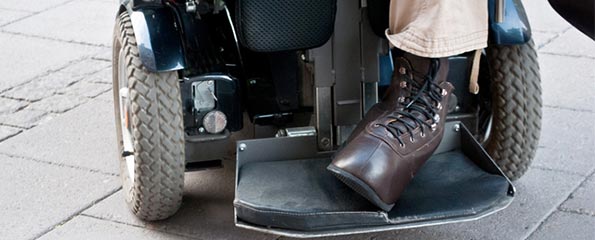Resting CD4 cells are inactive but can become active in the future. HIV replication in the resting cells is so minimal that anti-HIV drugs often fail to eradicate virus in these cells. T-20, also known as enfuvirtide, is a new type of anti-HIV drug called a fusion inhibitor. The purpose of this study is to test the ability of T-20 to decrease the level of HIV in resting CD4 cells in patients starting an anti-HIV drug regimen for the first time.
Official Title
A Pilot Study to Measure the Clearance of Replication-Competent HIV-1 in Resting Memory CD4+ Cells in HIV-1-Infected Subjects Who Receive T-20 Plus Oral Combination Antiretroviral Therapy
Conditions
HIV
Study Type
Interventional
Study Design
Treatment, Non-Randomized, Open Label, Historical Control, Single Group Assignment, Safety/Efficacy Study
Further Details
While current HIV treatment with combination antiretroviral therapy (ART) has reduced morbidity and mortality, it does not eradicate HIV infection. A possible explanation for this failure is the persistence of virus in long-lived reservoirs. Resting memory CD4 cells have been proposed as a possible cellular reservoir. Most patients who initiate ART during chronic HIV-1 infection do not experience a detectable reduction in HIV in the latent reservoir. This may be due to extremely low levels of viral replication in the resting CD4 cells. Increasing the potency of therapy by inhibiting new viral targets may result in a more rapid decay of latent virus. Addition of the fusion inhibitor T-20 to reverse transcriptase and protease inhibitors may help achieve this goal. T-20 inhibits cell-to-cell virus transmission by binding to gp41, the protein that regulates the fusion of HIV-1 to host cell membranes. This study will assess whether treatment naive, chronically infected patients treated with T-20 plus tenofovir, lamivudine, saquanivir, and ritonavir have a measurable decline in the latently infected CD4 cell reservoir. Patients in this study will receive subcutaneous injections of T-20 twice daily in addition to oral tenofovir, lamivudine, saquanavir, and ritonavir. At Week 24, patients will have their latent cell reservoir sampled. Patients whose plasma HIV-1 RNA is < 50 copies/ml will also have their latent cell reservoir tested at Weeks 48, 72, and 96. Patients whose plasma HIV-1 RNA is > 50 copies/ml at Week 24 may continue to receive T-20 and will be followed, but will not undergo additional evaluation of the latent cell reservoir. During the first 4 months of the study, patients will have 7 study visits; after that, study visits will be every 8 weeks until the end of the study at Week 96.
Study Start
Eligibility & Criteria
Ages Eligible for Study: 18 Years and above, Genders Eligible for Study: Both Criteria Inclusion CriteriaHIV-1 positive HIV-1 RNA >= 1,000 copies/ml within 60 days prior to study entry CD4 cell count >= 100 cells/mm3 within 60 days prior to study entry Acceptable methods of contraception Exclusion CriteriaPrevious treatment with antiretroviral agents for > 7 days Any previous treatment with T-20, lamivudine (3TC), or emtricitabine (FTC) HIV-related vaccine within 6 months prior to study entry Evidence of HIV seroconversion within 6 months prior to study entry Acute AIDS-defining opportunistic infection (OI). Patients who have no evidence of active disease and have been receiving maintenance therapy for AIDS-related OI for at least 30 days will be eligible. Systemic chemotherapy within 30 days of study entry Treatment with immune modulators such as systemic steroids, IL-2, alpha interferon, G-CSF, erythropoietin, or any investigational agent within 30 days of study entry Allergy to study drugs Pregnancy or breast-feeding Serious illness, substance abuse, or medical condition that would compromise the study Certain primary resistance HIV mutations
Total Enrolment
40
Contact Details
[1] National Institute of Allergy and Infectious Diseases (NIAID) (US)
All content and media on the HealthEngine Blog is created and published online for informational purposes only. It is not intended to be a substitute for professional medical advice and should not be relied on as health or personal advice. Always seek the guidance of your doctor or other qualified health professional with any questions you may have regarding your health or a medical condition. Never disregard the advice of a medical professional, or delay in seeking it because of something you have read on this Website. If you think you may have a medical emergency, call your doctor, go to the nearest hospital emergency department, or call the emergency services immediately.







